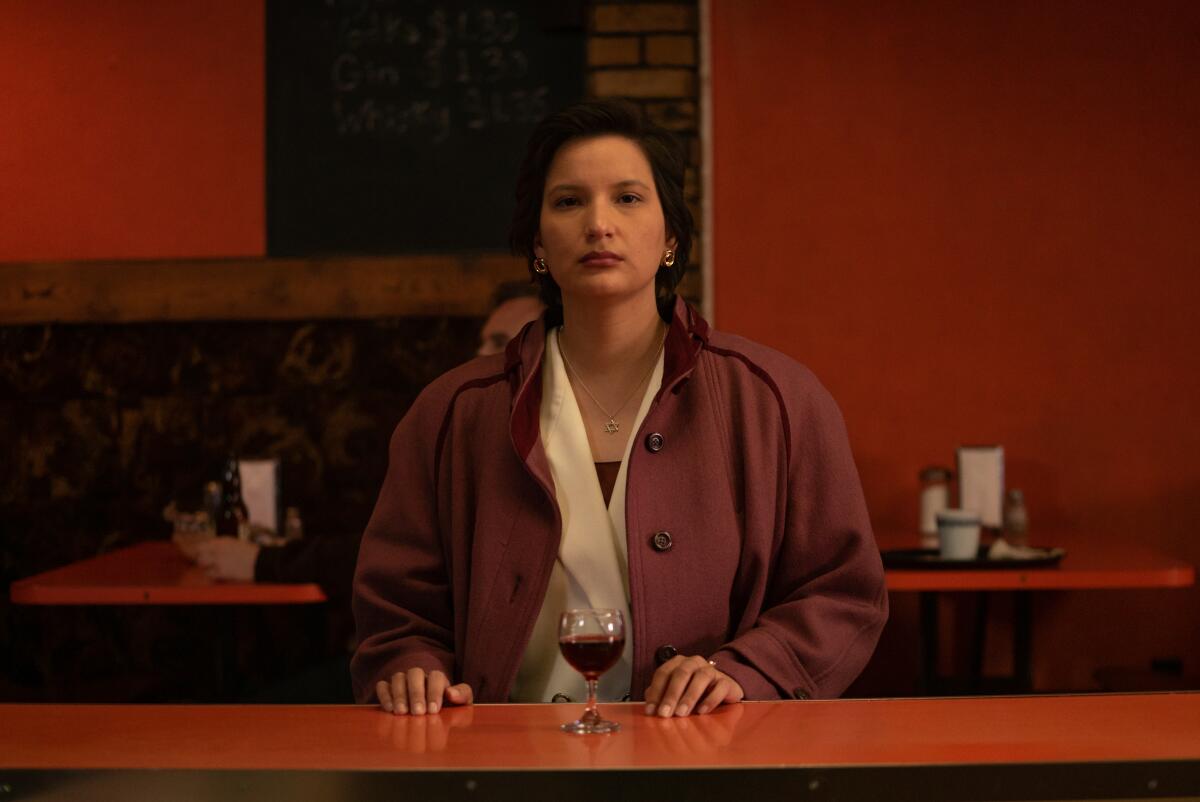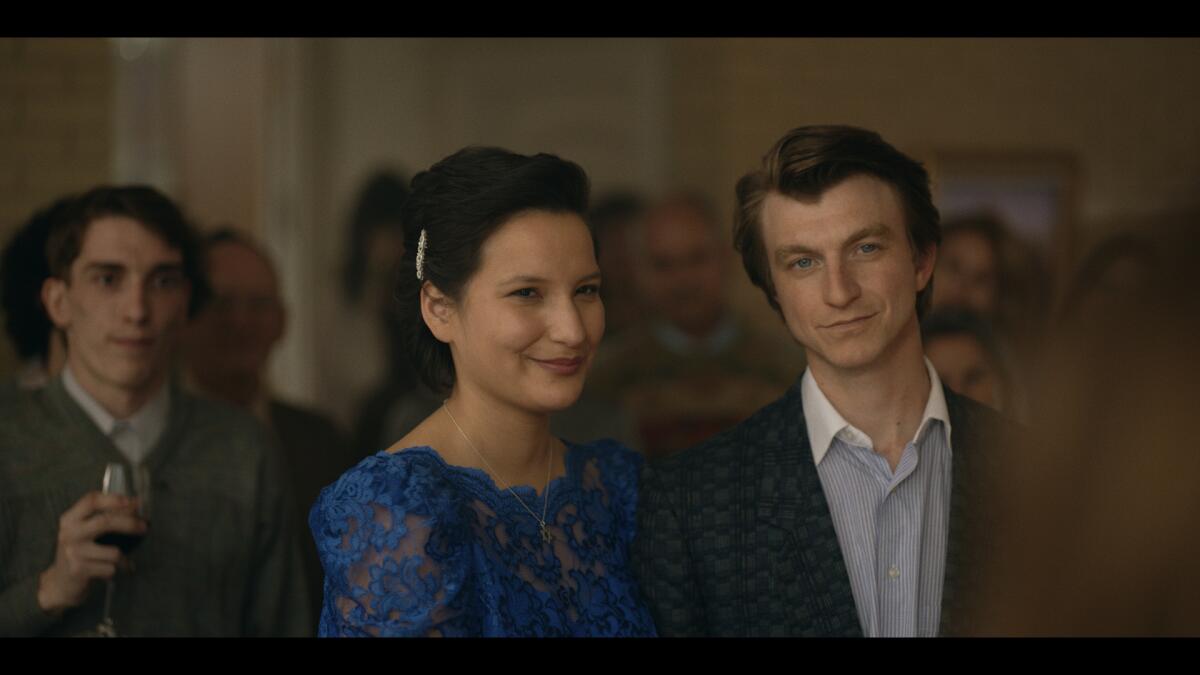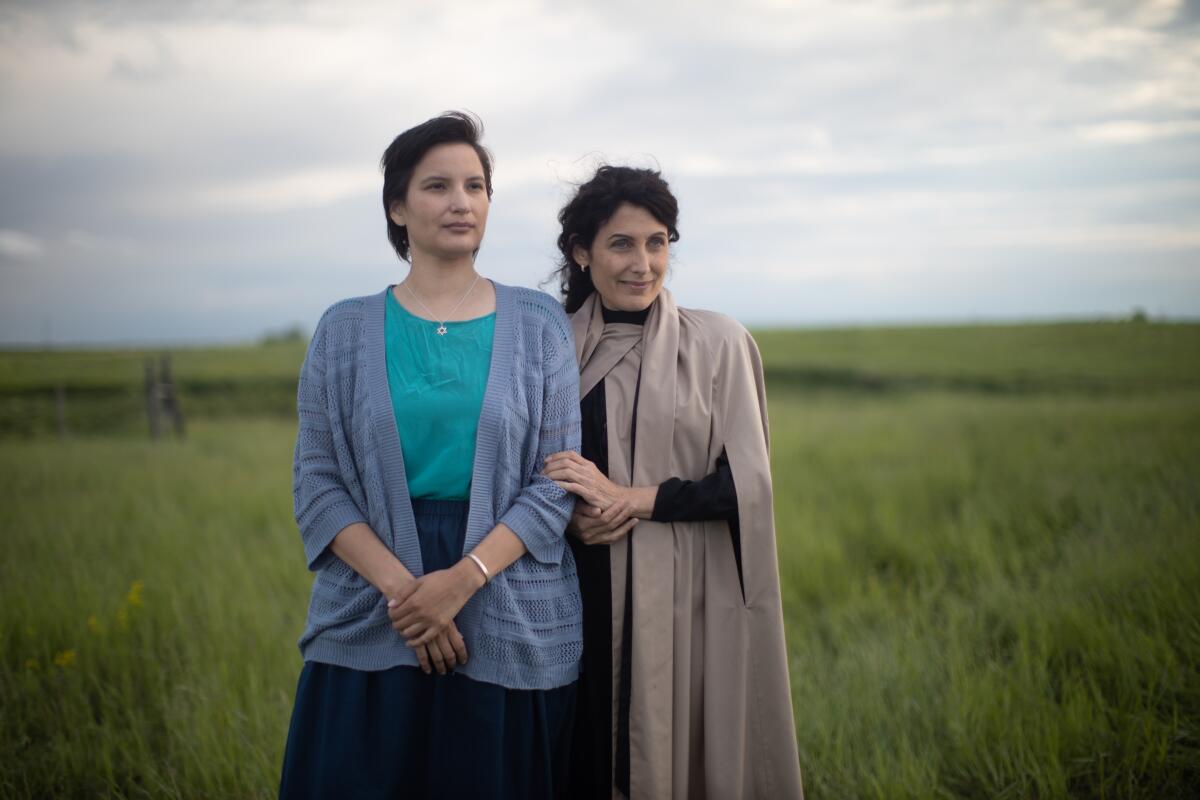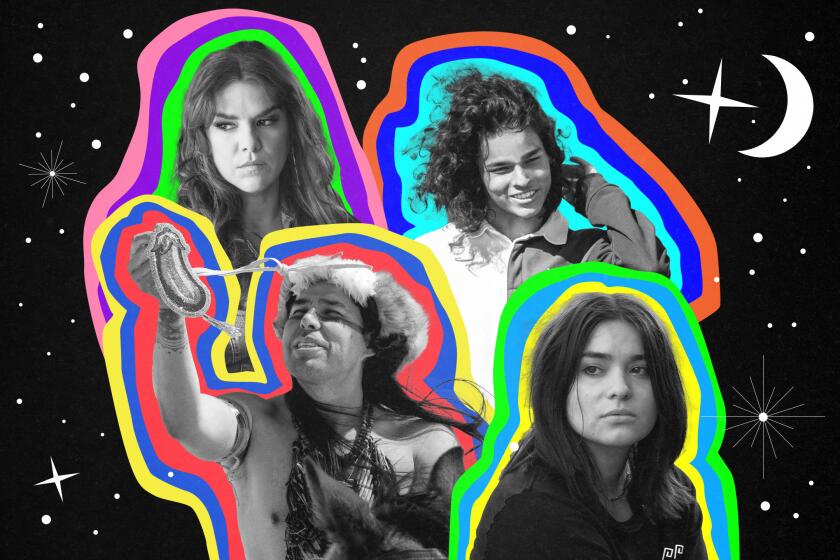‘Little Bird’ review: A powerful exploration of the ‘Sixties Scoop’ and Indigenous assimilation

- Share via
The moral arc of the television universe is slow, sometimes very slow, but it bends toward representation. Series that put people of color at the center of the story, rather than as supporting players, are still relatively new to the medium, but it was not all that long ago that they didn’t exist at all.
And no group was left longer at the gate than Indigenous North Americans, though they are knitted tightly into our national mythology, from Thanksgiving to westerns to revisionist westerns. What made “Reservation Dogs” feel like a small miracle — besides the fact that television is rarely that good — is that it told stories of ordinary lives from the inside, remaining culturally specific while universally true. It was a reminder too — or a wake-up call — that Indigenous talent, before and behind the camera, was ready to go, with their own stories to tell and actors to play them. No need to page Rock Hudson, Burt Lancaster, Audrey Hepburn, Tony Curtis or Johnny Depp, among white actors who have put on “redface.”
As “Reservation Dogs” comes to an end on Wednesday, L.A. Times television critics Robert Lloyd and Lorraine Ali mull the meaning of the show and why they loved it.
“Little Bird,” a fine Canadian drama that premieres here Thursday on PBS (streaming on pbs.org and the PBS app, and airing locally Sunday nights on PBS SoCal), looks at the “Sixties Scoop,” a period (predating and outlasting the ’60s) when welfare agencies were empowered to remove Indigenous children from parents they deemed unfit — “apprehended” is the word used here — and put them in foster care, potentially to be adopted.
Specifically at issue here is the Saskatchewan-based AIM program (for Adopt Indian and Métis — Métis referring to an Indigenous group with some mixed European ancestry, distinct from First Nations and Inuit peoples), which enlisted an advertising agency to sell white families on the idea of adopting Indian children.
Newspaper ads displayed their pictures, with descriptions, much as an animal shelter might let you know there was a cute Jack Russell terrier available, with shots. As with the residential or boarding schools that operated in Canada and the United States — a subject touched on in “Reservation Dogs,” “Dark Winds” and “Three Pines” — what begins as, or is sold as, a welfare program became a witting or unwitting instrument of cultural genocide and often child abuse.

The six-episode series unfolds along two timelines, in and around the Long Pine Reserve in 1968, and in Quebec in 1985. Darla Contois plays Esther Rosenblum, born Bezhig Little Bird, taken from her family at age 5 and raised Jewish in Montreal, now in her first year of law school and engaged to David (Rowen Kahn), a nice Jewish boy — and a doctor yet.
Esther, one of four children, has only snatches of memory of her time on the prairie and no actual information about her family, but the series is careful to establish that her life there was good and her parents caring, and that having no money isn’t exactly the same as being poor. (Listen to Dolly Parton talk, or sing about, her Tennessee childhood sometime.)
At the same time, Esther’s Montreal life is represented as secure and loving, if incomplete in ways she is only beginning to understand. (The series was co-created by Jennifer Podemski, who is of mixed First Nation and Israeli descent — her sister Sarah played Bear’s mother, Rita, in “Reservation Dogs,” while Jennifer herself appeared as Willie Jack’s mother, Dana — and playwright Hannah Moscovitch, Jewish on her father’s side; the cultural mix is informed, not arbitrary.)
Esther’s assimilated identity is established at the opening at an engagement party at the home of her moneyed future in-laws. It’s a scene packed to an almost comical degree with cultural referents — Yiddish, yarmulkes, hora dancing; Esther, has the vocal mannerisms of her adopted mother, Golda (Lisa Edelstein).
In the course of the afternoon, she overhears her future mother-in-law, who has been patronizing to her face (“I love your dress; it really suits your coloring”) expressing prejudice behind her back. Shaken, Esther heads off to Regina, Saskatchewan, without a word to anyone, to find out what she can about who she was before she was Esther.
It would be spoiling too much to be specific as to exactly who and what she finds, but given a six-episode series about a woman in search of her family, you can be sure that she’s going to turn up some family and that puzzle pieces will be put together. She will be hindered and sometimes helped as she goes; the series is sort of an odyssey and sort of a detective show.

Contois, who is tall and broad with soft features, literally embodies a character at once mature and not yet fully formed; Esther is smart but inexperienced in the world outside the world she’s grown up in. (She’ll taste Kentucky Fried Chicken for the first time.) As her character moves from a state of thoughtless confidence to one of informed confusion, she grows quieter; there are scenes in which she can barely utter a word. Contois does a lot with silence, somehow communicating a racing brain while sitting still; when she pulls herself together, to speak or act, it’s all the more powerful.
Inevitably, this story about a daughter is a story about mothers. Edelstein’s Golda, who had been loath to acknowledge Esther’s early life — these were not the days of parents making sure their trans-racial adopted children had the opportunity to connect with their ancestral cultures — becomes almost heroic as she moves from the edge of the story closer to the center. Her presence also gives “Little Bird” an opportunity, if in passing, to note what Jews and Indigenous people historically share as dispossessed minorities.
And Ellyn Jade is heartbreaking as Patti Little Bird, Bezhig’s mother — Esther’s birth mother — whose attempts to reclaim her daughter are frustrated by officials so convinced they’re doing good that they don’t bother to listen and who excuse refusals to help with dry recitations of what’s legal.
Although the series has come to teach some history, it doesn’t come off as didactic. (We get a range of illustrative situations and contrasting characters.) Every adoption and reunion is unique, and “Little Bird” shows us a few; but above all it’s a story of individuals in an individual, rather than a merely representative situation.
The drama stays on the right side of melodrama; only a few minor characters approach caricature. Though the circumstances are tragic, and not everyone will make out well in the end, “Little Bird” is on the whole hopeful, more a story about human goodness than institutional arrogance. Scenes of family coming together are as wrenching in their way as those in which they’re ripped apart, I declare with the authority of my tears.
More to Read
The complete guide to home viewing
Get Screen Gab for everything about the TV shows and streaming movies everyone’s talking about.
You may occasionally receive promotional content from the Los Angeles Times.








